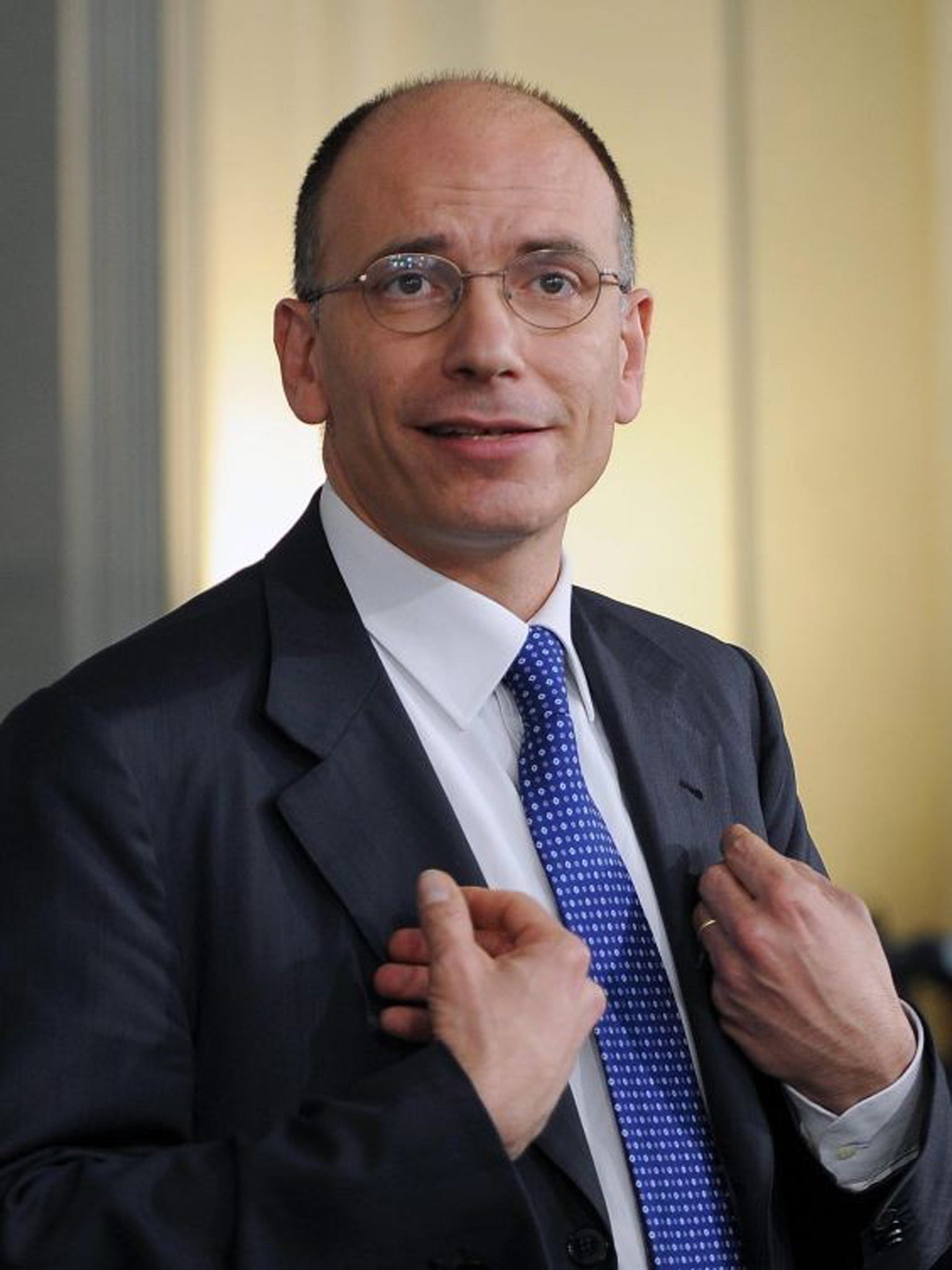Enrico Letta nominated as Italy's new prime minister
Former deputy leader of the centre-left Democratic party to form new government

Your support helps us to tell the story
From reproductive rights to climate change to Big Tech, The Independent is on the ground when the story is developing. Whether it's investigating the financials of Elon Musk's pro-Trump PAC or producing our latest documentary, 'The A Word', which shines a light on the American women fighting for reproductive rights, we know how important it is to parse out the facts from the messaging.
At such a critical moment in US history, we need reporters on the ground. Your donation allows us to keep sending journalists to speak to both sides of the story.
The Independent is trusted by Americans across the entire political spectrum. And unlike many other quality news outlets, we choose not to lock Americans out of our reporting and analysis with paywalls. We believe quality journalism should be available to everyone, paid for by those who can afford it.
Your support makes all the difference.The two-month political vacuum that has existed in Italy since February’s inconclusive general election, looks set to end after Enrico Letta, the deputy leader of the centre-left, was asked to become premier and form a new government by head of state President Giorgio Napolitano.
After accepting the job, 46-year-old Mr Letta, a moderate with ministerial experience, must now select a cabinet of technocrats and parliamentarians from across the political spectrum to ensure vital support from both centre-left and centre-right blocks, as he works on key reforms on the voting system and political funding.
A confidence vote needed to endorse the new administration may come as quickly as the weekend. Among those figures tipped for cabinet posts is the outgoing caretaker-premier Mario Monti who many pundits have called to be made foreign minister to cement European relations and calm the markets.
The unprecedented re-election last weekend of 87-year-old President Napolitano for a second term as head of state, following parliament’s inability to elect his successor, together with his decisive action to install a Letta-led “government of national unity”, appears to have pleased speculators – at least in the short-term – with borrowing costs in the pivotal eurozone country on the way down.
But few in Italy are under any illusion, however, over the difficulty Mr Letta faces in leading such a seemingly incompatible group of parliamentarians – from his centre-left Democrat Party and Silvio Berlusconi’s conservative PDL (People of Freedom) party, who have little in common apart from their contempt for each other.
“I am appealing to all political forces and their sense of responsibility,” Mr Letta told reporters at the presidential palace. “All of the essential reforms must be done together with the largest possible participation.”
There is much agreement that Italy’s system of PR needs to be overhauled to provide more incisive government, and that action is needed to deliver the country from a seemingly endless recession.
Mr Berlusconi, who has cheered up noticeably now the twin-threat of a hostile presidency and a left-wing administration minded to boot him out of parliament has receded, probably fancies himself as one of the powers behind the throne of a Letta-administration. Premier-elect Letta’s uncle Gianni Letta is one of Mr Berlusconi’s closest political associates – seen as the éminence grise who effectively ran Italy, while Berlusconi was partying with hookers.
Enrico Letta has strongly criticised Mr Berlusconi in the past — and recently called for an overhaul of Italy’s flawed, unwieldy justice system and new laws on corruption. But it’s unlikely the new premier’s thoughts on justice reform coincide with those of Mr Berlusconi, who faces criminal charges in three trials. Neither is it very likely that the tycoon’s parliamentary troops will vote for them.
Many observers are already likening the emerging left-right coalition to a parliamentary version of Frankenstein’s monster. “Italy is still in a dreadful situation. There’s never been anything like this,” said James Walston, a politics professor at the American University in Rome.
The anti-establishment Five Star Movement (M5S) of Beppe Grillo, which won a quarter of the vote in the general election, but refused to work with the centre-left, has now been effectively side-lined. Mr Grillo said his party would be the parliamentary opposition.
It seems likely, however, that the M5S is seeking to play a longer game. If the forthcoming left-right coalition proves as inept as Mr Grillo has predicted, then the M5S will no doubt be expecting to capitalise on this failure at the next poll, which surely can’t be more than a year away.
Profile: Enrico Letta
For someone hailed as the “first face from Generation X to govern Italy”. Enrico Letta, 46, has a surprising amount of political experience – having served in four governments, with stints as minister for Europe and for trade and industry starting in centre-left cabinets from the late 1990s.
His relative youth means that he is not tainted by past scandals, particularly those of the early 1990s. His moderate, Europhile, centre-left politics (he describes himself as “post-ideological“) should not prove too unpalatable to conservatives in the national unity coalition that he must now construct. His heroes are Polish anti-communist leader Lech Walesa and South African anti-apartheid icon Nelson Mandela. He has been married twice and has three children.
Join our commenting forum
Join thought-provoking conversations, follow other Independent readers and see their replies
Comments